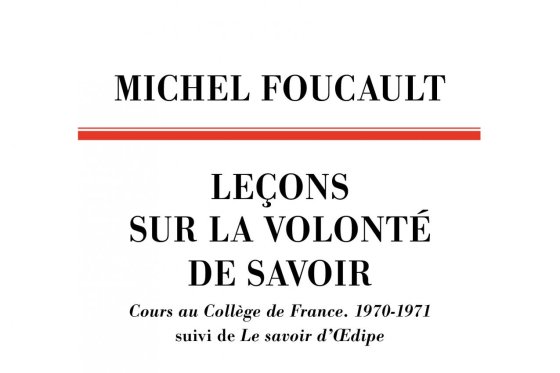These Lessons on the Will to Know remind us that Michel Foucault's work has never had more than one object: truth .Surveiller et Punir completes an investigation into the role of legal forms in the constitution of truth-telling, the first milestones of which we discover here. Truth is born of conflict, of competing claims that find in the rituals of judicial judgment the possibility of deciding who is right and who is wrong. Even in ancient Greece, different legal forms and ways of dividing truth and falsehood succeeded one another and clashed, and the quarrels of sophists and philosophers soon followed. Sophocles, in Oedipus Rex, demonstrates the power of truthful forms of expression: they both institute and depose power. Against Freud, who sees Oedipus as the drama of an unavowable sexual desire, Michel Foucault shows that tragedy articulates the relationships between truth, power and law. The history of truth is the history of tragedy. Beyond the irenicism of Aristotle, who placed the will to know in the desire for knowledge, Michel Foucault deepens the tragic vision of truth inaugurated by Nietzsche, which he wrests from the Heideggerian reading in a subterranean dialogue with Deleuze.Who will dare speak, after this lecture, of a skeptical Foucault?
This summary is published with the kind permission of Editions du Seuil. It is taken from the back cover of Leçons sur la volonté de savoir. Cours au Collège de France (1970-1971). Followed by Le savoir d'oedipe by Michel Foucault, published February 10, 2011.
This lecture has not been recorded.

